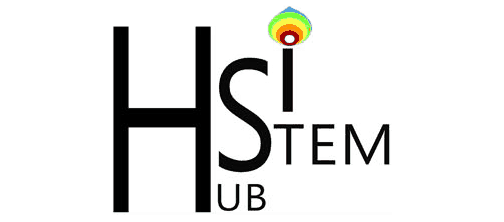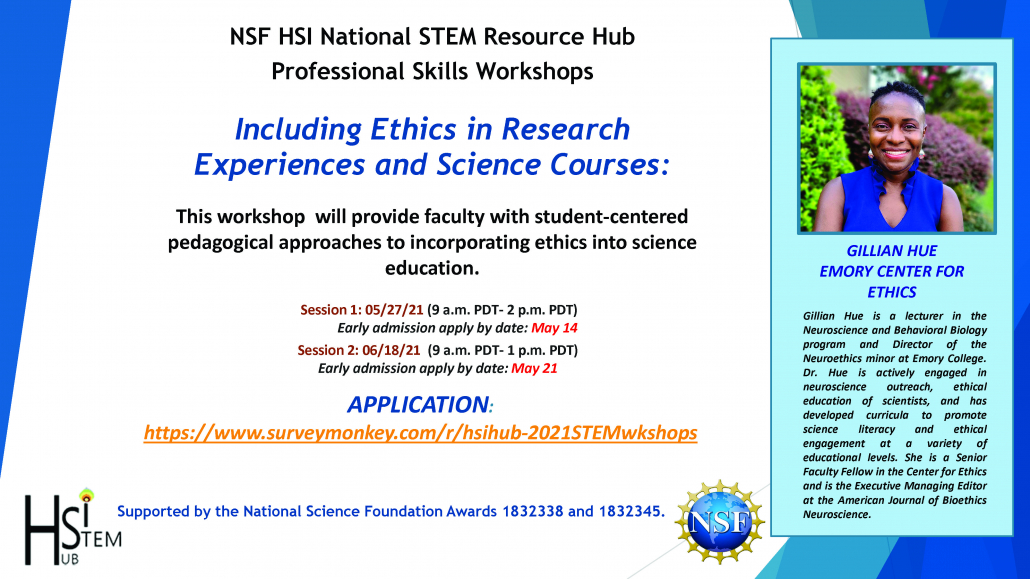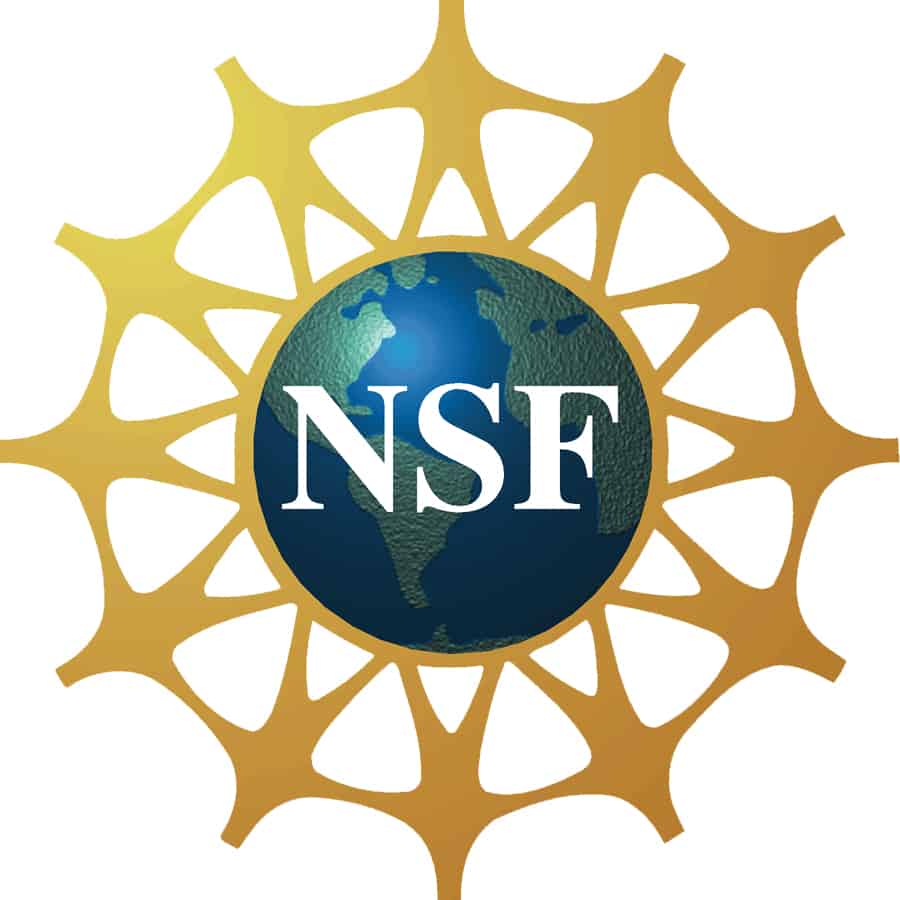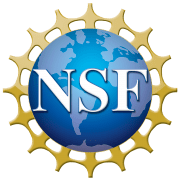Including Ethics in Research Experiences and Science Courses
Workshop Summary
Ethics education at this time is important. The historical misuse of scientific authority has paved the way for disproportionate poor outcomes in marginalized communities in practically every arena. An ethics perspective recognizes the deeply social nature of scientific inquiry and encourages critical analysis. Students can ask questions about power and participation in the sciences, who sets research priorities, and how distinct cultural priorities may allow different lenses on science and flourishing. Students can learn to examine multiple perspectives on the interpretation of scientific data, and question how scientific knowledge and technologies may be used to help or harm. Such skills allow students to explore the chains of causality and responsibility leading to (for example) a public health crisis like the one we are currently navigating; and the politicized and nuanced responses to said crises. An ethics view allows for novel conceptualizations of accountability and justice via the strengths, weaknesses, and inequities built into a society and its scientific endeavors. We will discuss how scientific ethics relates to the multiple concurrent crises unfolding in the USA and world and how critical pedagogical approaches can yield insight as a basis for transformative action.
Learn about the whole summer series here:
https://hsistemhub.org/2021-summer-stemed-workshops/
Goals of the Workshop
Workshop attendees will be able to reflect on and anticipate the most salient scientific issues that affect their students and utilize a scientific ethics perspective to recognize the deeply social nature of scientific inquiry and encourage critical analysis. More than the obligatory responsible conduct of research (RCR) training, this workshop will provide and support faculty with student-centered pedagogical approaches to incorporating ethics into science education.
Apply
Submit your application at this link: https://www.surveymonkey.com/r/hsihub-2021STEMwkshops
Learning Objectives
Workshop attendees will:
- Understand the utility of ethics as an opportunity to teach a more responsible and engaged science.
- Be able to use (and teach the use of) a rubric for examining ethical, legal, social implications of ethically fractious scientific problems.
- Become familiar with cases and resources for established cases, as well as be able to adapt current events for classroom engagement.
Workshop Details
Eligibility Criteria
Enrollment is free and is limited to 20 participants per workshop. It is hoped that the small workshop size will facilitate networking and promote collaboration across institutions by individuals who share common interests in research and education.
Participation priority is for current HSI faculty and staff who teach undergraduate STEM courses. Non-HSI faculty staff who teach undergraduate STEM courses are eligible to apply if they: 1) currently collaborate as PIs/co-PIs on a funded or pending NSF EHR/DUE grant that includes HSI faculty/staff as PI/co-PIs or 2) would like to network to find HSI partners for future collaborative projects in education or research.
Admission priority is for faculty within the first 10 years of their first academic tenure-track appointment. Applicants should be aware that the selection process strives for diverse geographical and institutional representation. The selection decision is final and summary reviews are not provided.
Workshop Speakers

Gillian Hue, Ph.D., Lecturer, Emory College of Arts & Sciences
Gillian Hue is a lecturer in the Neuroscience and Behavioral Biology program and Director of the Neuroethics minor at Emory College. Dr. Hue is actively engaged in neuroscience outreach, ethical education of scientists, and has developed curricula to promote science literacy and ethical engagement at a variety of educational levels. She is a Senior Faculty Fellow in the Center for Ethics and is the Executive Managing Editor at the American Journal of Bioethics Neuroscience.
Workshop Sponsors and External Links



